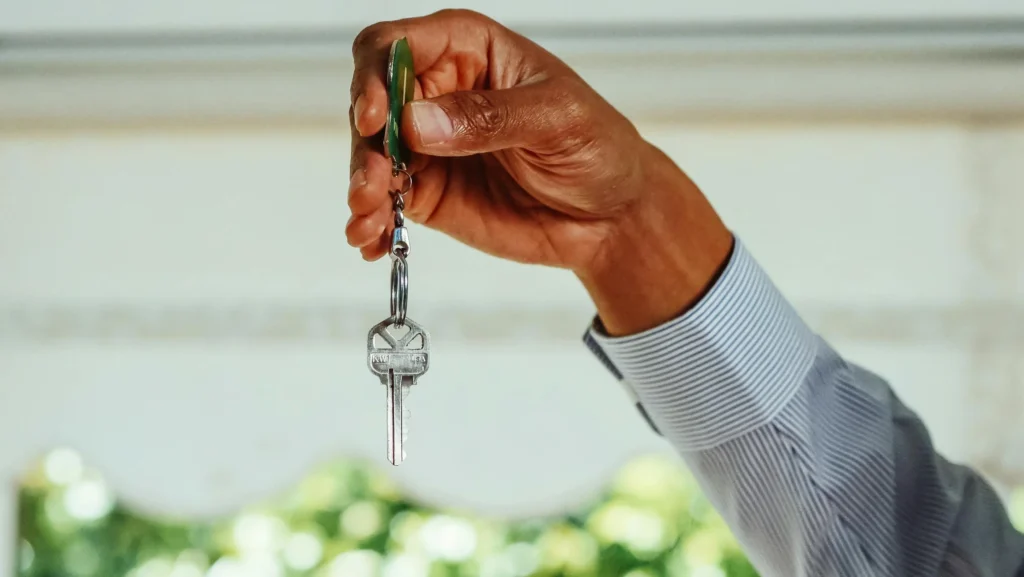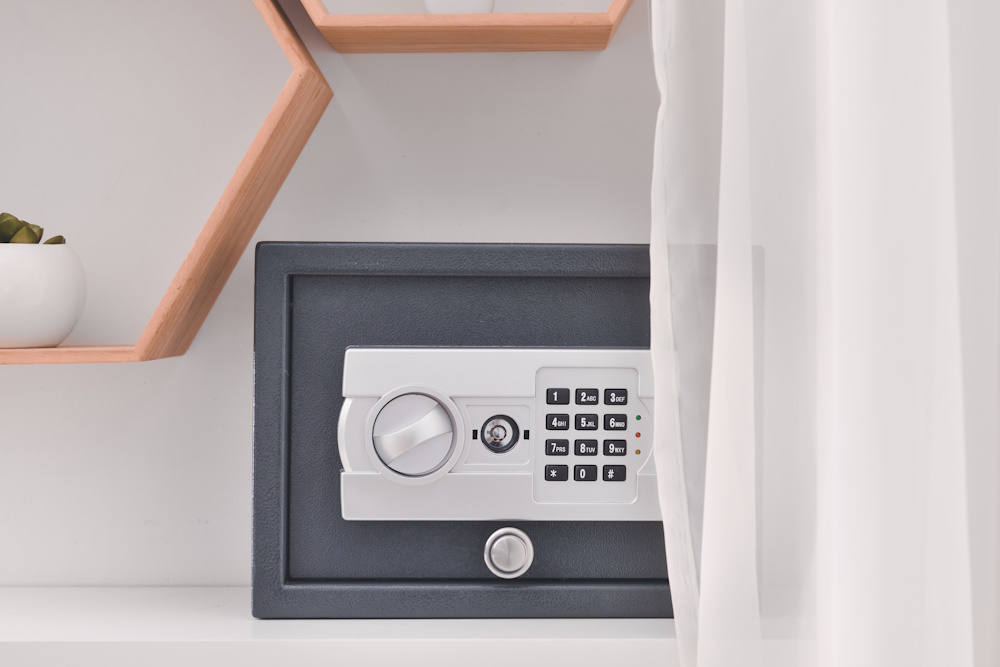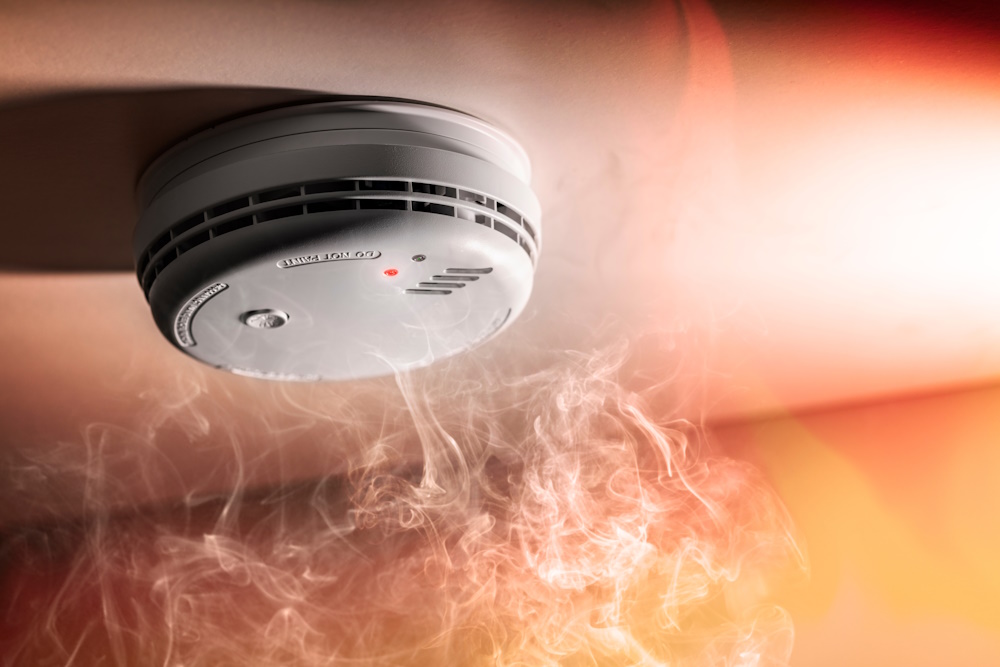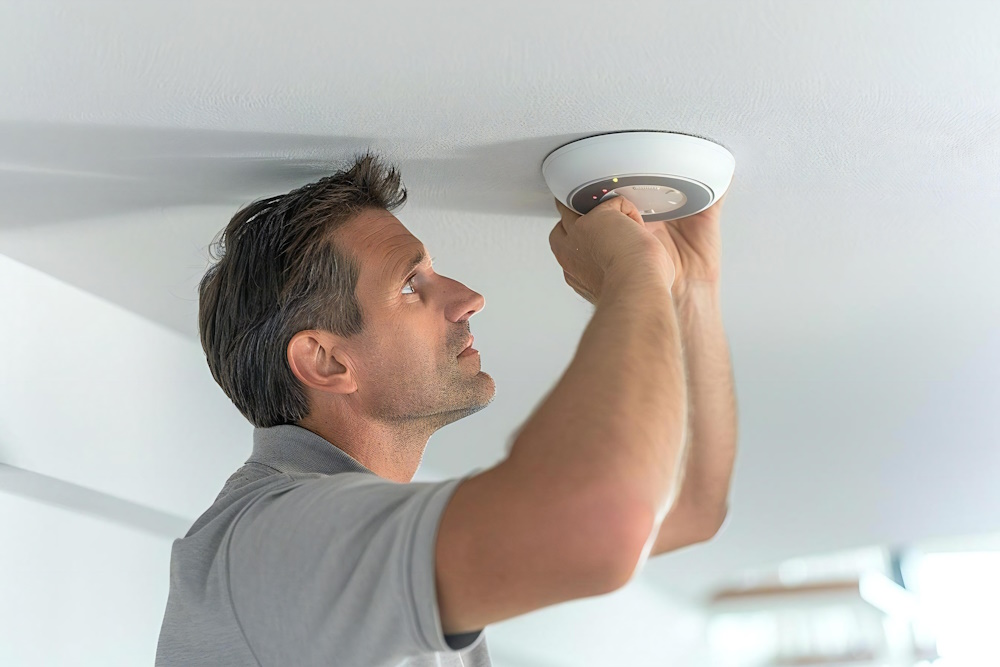Everyone deserves to feel safe in their home. Your home is a place where you can trust that your valuable belongings and sensitive personal information will stay safe, not to mention where you and your family should feel at ease going to sleep at night. These safety tips will emphasize the different ways you can maximize your home’s security as well as deter a potential burglar in the first place.
Door and Window Security Measures
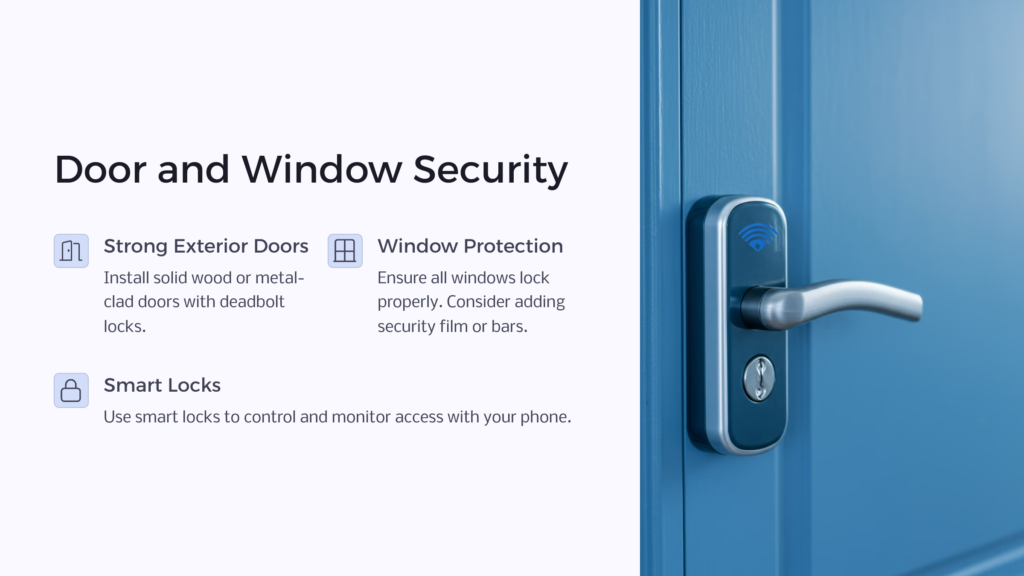
Your home’s doors and windows are the first line of defense against intruders. To keep them secure, start by checking all of your exterior doors. They should be solid wood or metal-clad. If they’re hollow, replace them with a stronger exterior door. Also, ensure deadbolt locks are installed on all exterior doors as they’re much harder to pick than regular locks.
Make sure you don’t forget about your windows. Many burglars enter homes through unlocked windows. Check that all your windows lock properly, and for ground-floor windows, consider adding window bars or security film. This makes it harder for someone to break the glass to get in. If you have sliding doors or windows, use a security bar. This stops anyone from forcing them open from the outside.
For extra safety, think about using smart locks. These let you lock and unlock doors with your phone. Some even tell you when someone enters your home. Using a smart lock can give you extra peace of mind because you can check if there’s any unlocked door you missed when locking up. But remember, the best lock in the world won’t help you if you don’t use it. Make sure to lock up every time you leave home or go to bed and to actually use the extra security you’ve paid for.
Leveraging Smart Technology for Home Protection
Smart home security tech is getting better and cheaper all the time. It can make your home much safer. Smart doorbells with cameras let you see who’s at your door, even when you’re not home. You can talk to visitors through your phone. This is great for keeping an eye on package deliveries or unexpected guests.
Smart cameras inside and outside your home can record any suspicious activity. Many can send alerts to your phone if they detect movement. Some even have night vision. Smart alarm systems can call the police automatically if someone breaks in. They can also alert you to fires or carbon monoxide leaks.
Even smart lights can be used for extra security by setting them to turn on and off when you’re away. This makes it look like someone’s home, even when you’re on vacation. Just remember, all these smart devices need to connect to the internet. Make sure your home network is secure to keep hackers out.
Effective Burglar Deterrents
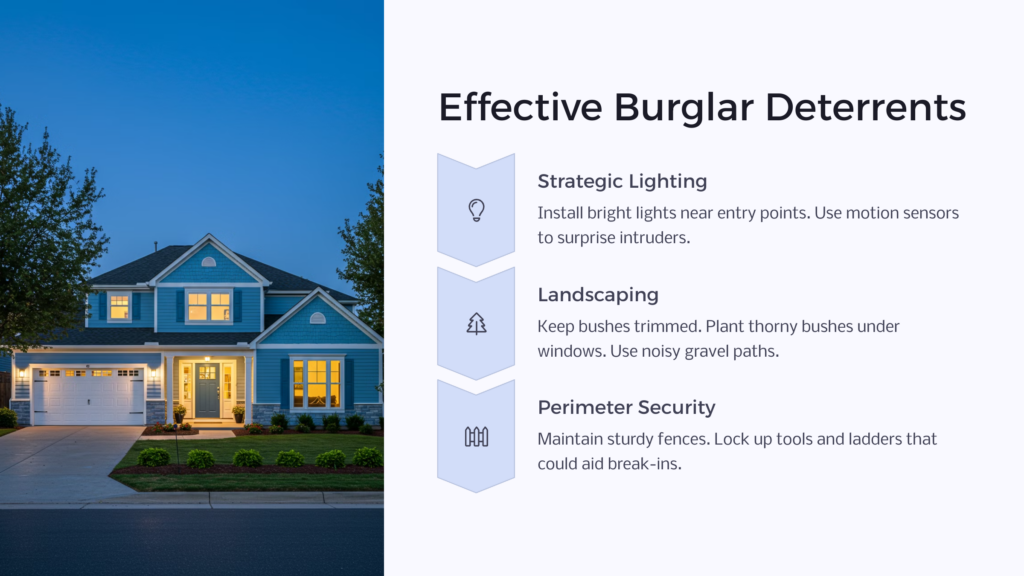
Good lighting alone can help prevent a home burglary by scaring off potential burglars. They don’t want to be seen. Put bright lights near all entry points to your home. Motion-sensor lights are great for this. They turn on when someone comes close, surprising potential intruders.
Your yard can also help keep burglars away. Keep bushes and trees trimmed, especially near windows, as burglars may use tall plants as a hiding spot. Instead, plant thorny bushes under windows. This makes it harder for someone to break in as they are in clear view. Gravel paths are good too. They make noise when someone walks on them, alerting you to visitors.
Don’t leave tools or ladders outside. Burglars can use these to break in. Lock them up in a shed or garage. If you have a fence, make sure it’s in good shape. A sturdy fence can also deter intruders and keep your family safer.
Securing Your Garage and Outdoor Spaces
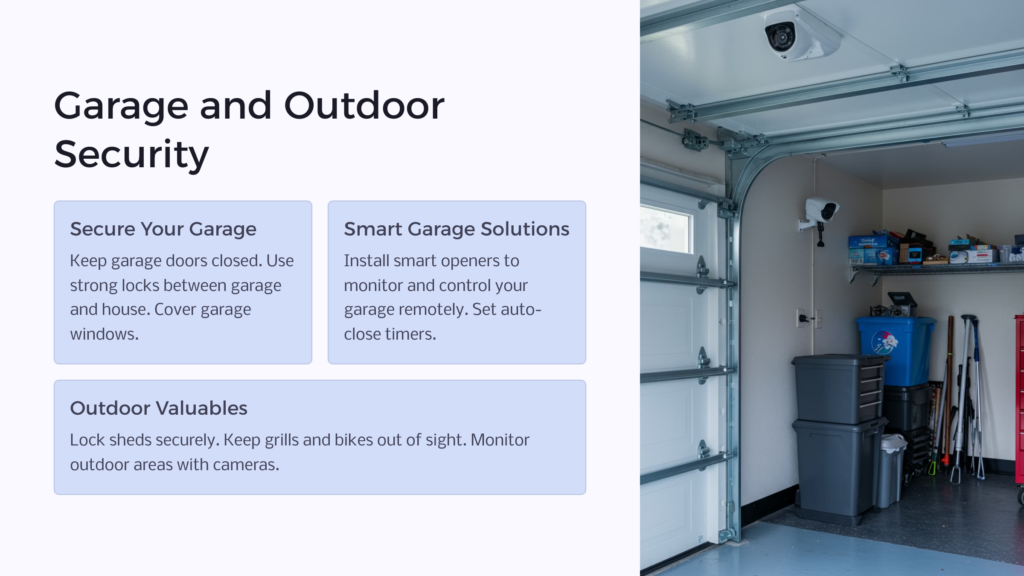
Many people forget about garage security. But a garage can be an easy way for burglars to get into your home. Always keep your garage door closed, even when you’re home. Use a strong lock on the door between your garage and house. If your garage has windows, cover them so people can’t see inside.
For extra security, use a smart garage door opener. These let you check if your garage is open or closed from your phone. You can even close it remotely if needed, while others close automatically after a set time.
Don’t forget about other outdoor spaces. If you have a shed, make sure it’s locked. Keep valuable outdoor items, like grills or bikes, secured or out of sight. Consider using security cameras to watch outdoor areas. This can help you spot any suspicious activity around your property.
Home Security Systems
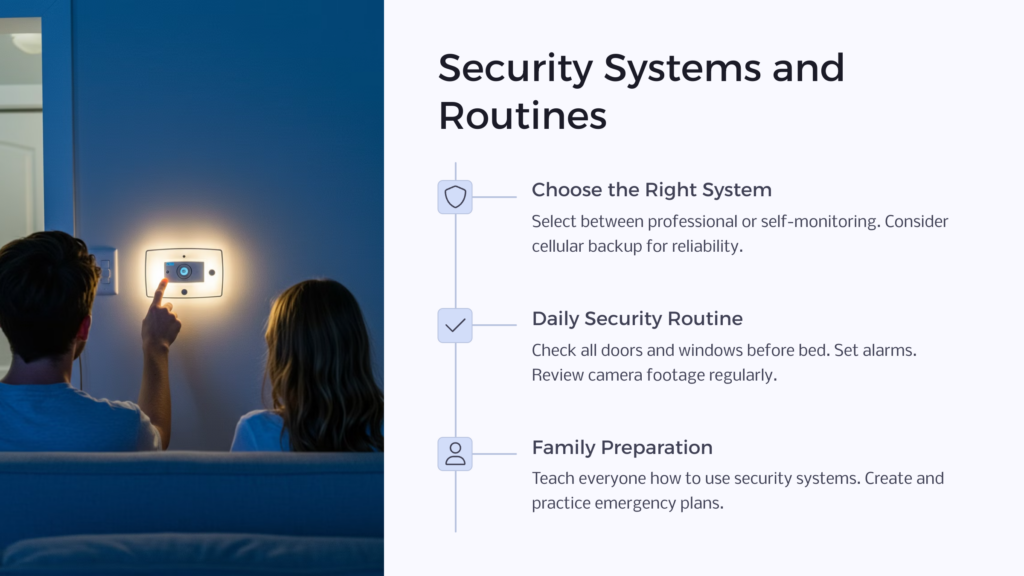
A good home security system can give you peace of mind. Basic systems include door and window sensors, motion detectors, and a control panel. When triggered, they sound an alarm and can alert a monitoring service. More advanced systems might include cameras, smoke detectors, and even flood sensors.
When choosing a system, think about your needs. Do you want professional monitoring or will you monitor it yourself? Professional monitoring costs more but means someone is always watching your home. Self-monitoring is cheaper but requires you to call the police yourself if there’s a break-in.
Consider how the system connects to the monitoring service. Some use your home’s internet, others use cellular networks. Cellular is more reliable since it works even if your internet is down. Look for systems that are easy to use. You don’t want to set off false alarms because the system is too complicated.
Creating a Home Security Routine
Good habits are key to home security. Create a routine to check your home’s security every day. Before bed, do a walk-through of your house. Check that all doors and windows are locked. Set your alarm if you have one. In the morning, check any security cameras for unusual activity overnight.
When you leave home, double-check that everything is locked. Don’t forget about less obvious entry points like pet doors or basement windows. If you’ll be gone for a while, use timers on lights to make it look like someone’s home. Ask a neighbor to collect your mail so it doesn’t pile up.
Teach your family about security too. Make sure everyone knows how to use the alarm system and what to do in an emergency. Have a plan for what to do if someone breaks in while you’re home. Practice this plan with your family regularly.
Protecting Your Home While Away
When you’re on vacation, your home is more vulnerable. Take extra steps to keep it safe. Ask a trusted neighbor to keep an eye on your house. They can pick up mail, newspapers, and packages. A pile of papers on your porch or bulging out of your mailbox is a sure sign no one’s home.
Use timers on your lights, TV, and radio. Set them to turn on and off at different times to make it look like someone’s home. If you’ll be gone for a long time, arrange for someone to mow your lawn. An overgrown yard is another sign that a house is empty.
Be careful about what you post on social media. Don’t announce your vacation plans publicly. Wait until you’re back to share photos. Burglars sometimes use social media to find empty homes to rob.
Safeguarding Against Porch Pirates
Package theft is a growing problem. Thieves, often called “porch pirates,” steal packages left on doorsteps. To protect your deliveries, consider a lock box for your porch. Delivery people can put packages inside, while only you have the code to open them.
If possible, have packages delivered to your workplace instead of your home. Or use Amazon lockers or similar services where you can pick up packages securely. Some delivery services let you give special instructions. You might ask for packages to be left behind a planter or with a neighbor.
Video doorbells can help too. They let you see when a package is delivered. You can ask a neighbor to grab it if you’re not home. Some even let you talk to the delivery person through your phone to give instructions.
Cybersecurity for Smart Home Devices
Smart home devices can make your life easier, but they can also be a security risk if not set up properly. Always change the default passwords on these devices. Use strong, unique passwords for each one. Enable two-factor authentication if available. This adds an extra layer of security.
Keep your devices updated. Manufacturers often release security updates to fix vulnerabilities. Set your devices to update automatically if you can. Be careful about what information you share with these devices. Some collect more data than you might realize.
Secure your home Wi-Fi network too. Use a strong password and WPA2 encryption. Consider setting up a separate network just for your smart home devices. This keeps them separate from your computers and phones, adding an extra layer of protection.
Neighborhood Watch and Community Safety Strategies
Working with your neighbors can make your whole community safer. Consider starting or joining a neighborhood watch program. These groups keep an eye out for suspicious activity and report it to the police. They can also share information about local crime trends.
Get to know your neighbors. Look out for each other’s homes when someone is away. Share contact information so you can reach each other in an emergency. Some neighborhoods use apps like Nextdoor to stay connected and share safety information.
Work with local law enforcement. Many police departments offer home security assessments. They can point out weak spots in your home’s security and suggest improvements. They might also have crime statistics for your area, helping you focus on the most likely threats.
Choosing the Right Home Security System for Your Needs
With so many options, picking a home security system can be overwhelming. Start by assessing your needs. Do you live in a high-crime area? Do you travel a lot? Do you have valuables you want to protect? Your answers will help guide your choice.
Consider your budget too. Basic DIY systems can be affordable, while full-service professional systems cost more. Think about ongoing costs like monitoring fees. Some systems require long contracts, others are month-to-month.
Look for systems that are easy to use and expand. You might want to add components later as your needs change. Read reviews from other users to see how the system works in real homes. Don’t forget to check what happens if the power goes out. Good systems have backup batteries to keep working.
Hidden Storage and Safes: Protecting Valuables Inside Your Home
Even with good security, it’s smart to hide valuable items inside your home. A safe is a good option for important documents, jewelry, and cash. Choose one that’s fireproof and bolt it to the floor or wall. This makes it much harder for a thief to steal.
For less valuable items, get creative with hiding spots. Fake electrical outlets, hollow books, or even fake food cans can hide small valuables. Just remember where you put things! Avoid obvious hiding spots like under the mattress or in the freezer. Burglars know to check these places.
Consider a safety deposit box at a bank for very valuable or rarely used items. This is the most secure option for things like family heirlooms or important legal documents. Remember, the goal is to make it as hard as possible for a thief to find and take your valuables.
Homeowner.org Can Help You
Your home is a valuable investment and protecting it should never be overlooked. Following these tips can help to keep your home and everything in it safe and secure. There are many security system options to best suit the needs of your home and family, so don’t hesitate to invest in your peace of mind. Check us out at Homeowner.org for more great ideas and tips on buying, improving, and loving your home.
